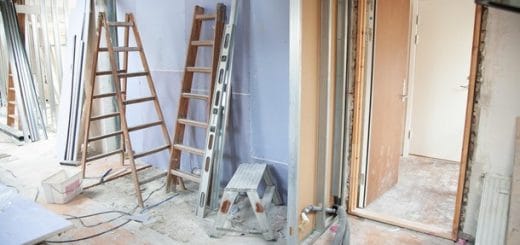How do Drought Conditions Affect Your Home?
Definition of Drought and Its Causes
A drought is defined as a deficiency of precipitation over a prolonged period, for example a season or more, which results in a water shortage.
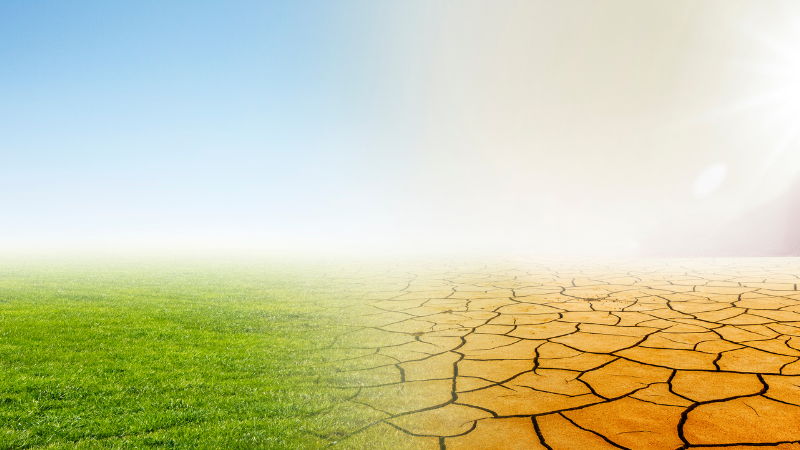
A drought may be caused by conditions that are drier than normal which causes water supply issues. Sometimes it is due to hot temperatures that cause any leftover moisture to evaporate quickly from the soil. Here are some reasons why droughts may occur:
- The rain or snow does not fall everywhere on earth evenly. This means some areas are usually wetter while others are dry. However, in many years, the level of precipitation in a specific region is usually very consistent. In dry areas there is little precipitation while other areas get much more precipitation on average.
- If a certain area does not get its usual amount of rain, its soil gets less moisture which causes the soil to dry out and plants to die. If this continues for a few weeks, months, or even years, the flow of rivers will slow down and the level of water in lakes and reservoirs will also decrease. This dry period is a drought and will leadLead is a heavy metal that can be toxic to humans, especiall... More to water supply issues.
Understanding the Impact of Drought on Homes
It is important to understand how a drought can negatively impact your home. When there is a drought, the soil will shrink and make gaps in the ground. The foundation can settle and make new gaps due to gravity. Always make sure to look out for cracks or sloping and treat them right away so you can prevent costly repairs to your foundation.
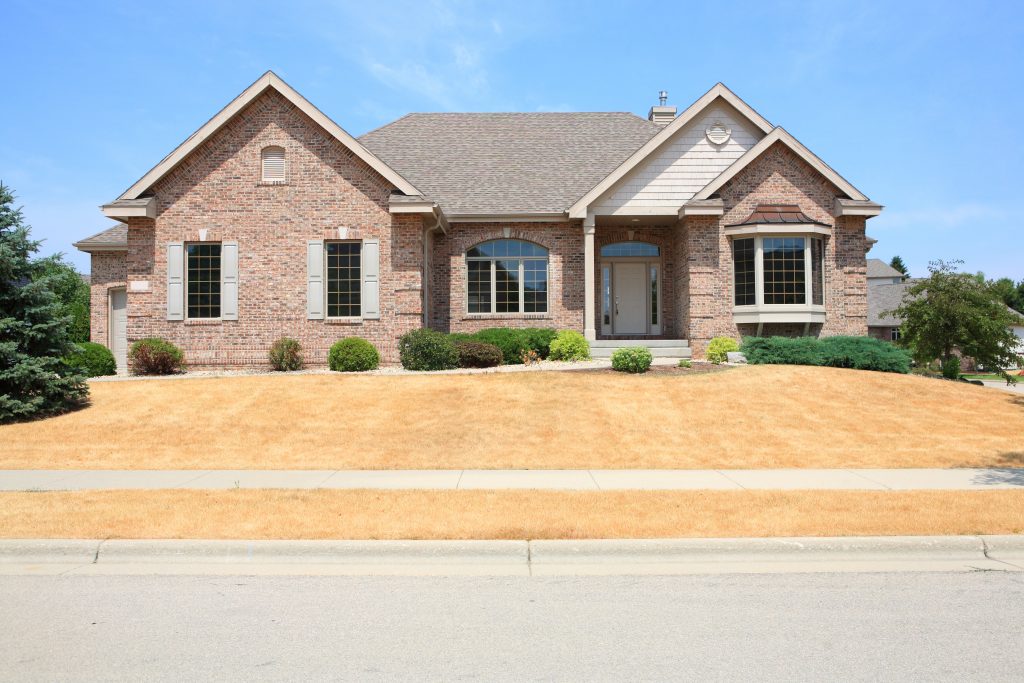
Water Supply and Availability
It is crucial to understand how droughts can affect your water supply and availability. This is something that affects our day-to-day life, and it is essential for a functioning society.
Sometimes droughts can have an operational impact on the water supply, including a loss of water supply or even poor water quality. This means that when it comes to municipal water sources, droughts can cause loss of water pressure, poor water quality, an inability to access alternative water sources, increase in demand from customers, and increased cost due to drought impact.
For those who have private or well water, during a drought, they may be at risk of using polluted water. As rainfall decreases, virusesViruses are microscopic infectious agents that can only repr... More, protozoa, and bacteria can pollute groundwaterGroundwater is water that exists beneath the earth’s surfa... More and surface water, so those using private wells are at risk of drought-related infectious disease.
During a drought, homeowners will be required to conserve water, or they may be put under water restrictions. There are various simple ways in which water can be conserved. Here are a few:
- Installing sink aerators and water-efficient toilets
- Make your showers shorter
- Don’t pour water down the drain if you can find another use for it such as watering your plants
- Ensure your home is leak-free

Landscaping and Gardens
Droughts can put extreme stress on your lawn, plants, and trees. This is due to lack of water which can cause stunted growth and increased susceptibility to disease. You may see wilting, scorching of leaves, and defoliation. The long-term damage you may see over the years may cause stunted growth, branch die-back, and the plants possibly dying.
Gardening and various agricultural practices can be highly affected by droughts. This is because the water availability is reduced as well as soil moisture which decreases crop yield and livestock productivity. Droughts can also increase the risk of insect and disease outbreaks, wildfires, and even altered ecosystems that can cause harm to the vegetation and soil.
Water-efficient landscaping is crucial for droughts as it reduces irrigation water use and can withstand droughts. This means that there is less damage, and it requires less time and money for you to maintain it. When you use efficient water conservation practices, you can save money on utility bills, save time on watering, and protect your plants.
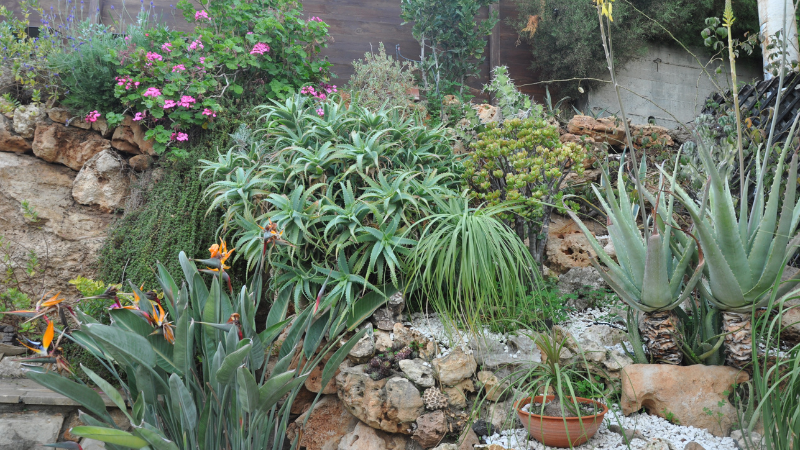
Foundation and Structural Issues
When you have issues with your foundation or the structureStructure refers to the framework or components of a buildin... More of your home or business, it can cause you to have property that is unsafe for living over time.
When there is a drought, the soil around your home may shrink and crack which puts pressure on your foundation and can cause mayor issues such as water damage, moldMold is a type of fungus that grows in damp or humid conditi... More, and even structural damage. When you foundation cracks, it causes the structureStructure refers to the framework or components of a buildin... More of your home to be unstable. This may cause additional damage over time, including structural damage that requires major repairs.
When your foundation has been damaged, you will see it on the inside of your home as well. Over time, you may notice that your walls or ceilings have small or large cracks, and sometimes even your floors will crack. This is because the soil shifting makes the foundation unstable which then causes the damage.
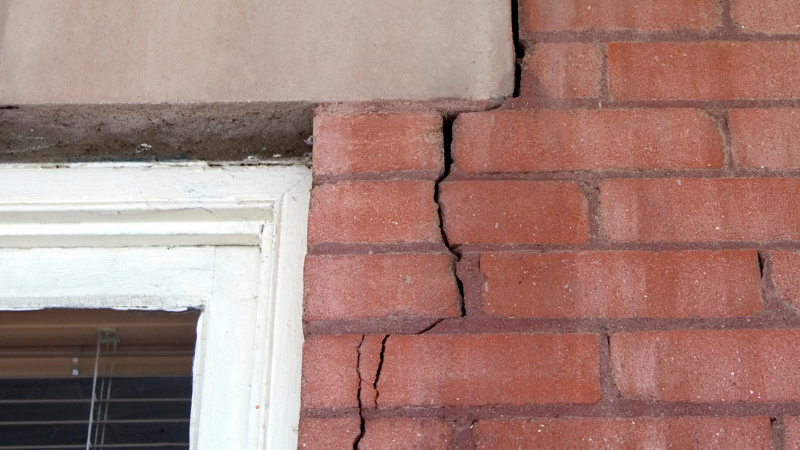
Plumbing and Water Systems
Your plumbing and water systems can be greatly affected by droughts. It is important to be prepared for this situation by conserving water, fixing any leaks, installing aerators with floor restrictors, insulating your water pipes, and installing water-saving plumbing fixtures.
Droughts can cause issues with your water pressure and plumbing problems. This happens due to the soil contracting and putting extra pressure on underground pipes which can cause them to crack or break and leak or clog, leading to extensive water damage. At times, water utility operations can be affected, and you will notice low water pressure or issues with low water supply in general.
Your water system should be maintained regularly, because if it is not, you can run into costly issues. If you have a section of a pipe that needs to be replaced or repaired, you may experience water loss that can be avoided with regular maintenanceMaintenance is the routine care, inspection, and repair of a... More.
Fire Hazards
Droughts can increase the risk of fire hazards. When trees and grass become dry, a fire can ignite and spread very quickly. Also, droughts can get more intense with warm temperatures.
When there are warm temperatures and low precipitation, the extreme heat leads to decreased streamflow, the soil gets very dry, and trees can die. Because of these conditions, wildfires can spread quickly, and they are more difficult to put out.
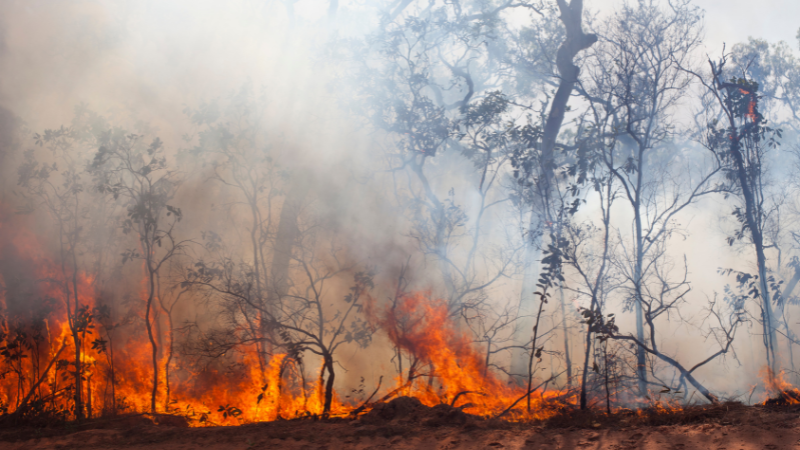
If you live in an area that experiences droughts, your home may be at risk of fire damage from wildfires. It is important to have fire preventionPrevention refers to actions taken to reduce the likelihood ... More and preparednessPreparedness is the state of being ready to respond to emerg... More measures in place to avoid costly damage to your home from a fire. Although droughts can be experienced anywhere, try to avoid building a home where droughts are more common as your property may be at more of a risk for fire damage. Also, make sure to plant fire-resistant trees and shrubs. If you do live in an area where wildfires are common, make sure to always have an emergency preparednessPreparedness is the state of being ready to respond to emerg... More kit ready to keep you and your family safe.
Indoor Comfort and Energy Efficiency
To ensure that your HVAC system functions efficiently for many years, it is important to use it the right way so that you can be comfortable but also keep your energy bill down.
When the temperature is higher outside, your HVAC system must work harder, which means the energy use is higher. Straining the HVAC system can result in higher energy bills and increase the risk of a potential failure in the system. It is important to do everything you can to maintain comfort in your home without it negatively affecting your HVAC system and causing it to fail. Here are some ways you can maintain your indoor comfort while also being efficient:
-

Modern Programmable ThermostatA thermostat is a device that monitors and regulates tempera... More on a wall
Upgrade to a programmable thermostatA thermostat is a device that monitors and regulates tempera... More
- Change your HVAC filter
- Use indoor plants
- Install an air purification system
- Do preventative HVAC maintenanceMaintenance is the routine care, inspection, and repair of a... More
- Open the windows
Health and Safety Concerns
PollutionPollution is the introduction of harmful substances into the... More of the air negatively impacts our health, causing multiple issues such as asthma and pulmonary diseases among others. When there are wildfires due to droughts, it can affect the number of particles in the air caused by pollen, smoke and fluorocarbons and make chronic pulmonary issues worse. Waterborne diseases are also triggered by water shortages. When there is a drought, there is a concern with air quality as there is a presence of airborne toxins coming from freshwater blooms of cyanobacteria.
Proper hygiene is extremely important so that infectious disease can be prevented. This includes washing your hands with soap for at least 20 seconds and using hand sanitizer with at least 60% alcohol when you do not have soap available.
Insurance and Financial Considerations
If you own a home, it is important for you to be aware of what your coverage is in case you experience damage related to a drought. Many insurance companies do have limitations for drought-related damages. You should always check what your coverage includes just in case you experience issues with your foundation due to drought conditions.

As the property damage from droughts has increased in frequency over the years, it is also expected that insurance premiums for this type of damage will increase over time. Also, the cost of repairs and mitigation efforts has increased to billions over the years, which is why it is important to take all possible mitigation efforts when it comes to droughts. Some mitigation measures that can be taken include conserving and recycling water and xeriscaping which uses little water for landscaping purposes.
Water Conservation and Drought Adaptation Strategies
As droughts have a major impact on agriculture and water supply, there are various mitigation and adaptation strategies that can help conserve water and help during this time. Here are a few:
- Storing surface water
- Creating water pipelines to bring water from areas that have extra
- Cloud seeding to induce precipitation and make it rain
- Storm water management plans and recycling potablePotable water is safe and suitable for drinking. In restorat... More water
At your home, you can create water conservation practices that can help during droughts. This includes planting plants that are drought tolerant, enriching your soil so it holds more water, letting your lawn go dormant, hand watering your garden and shrubs, washing your car using a bucket for water, and applying mulch to plants, shrubs, and ornamental trees.
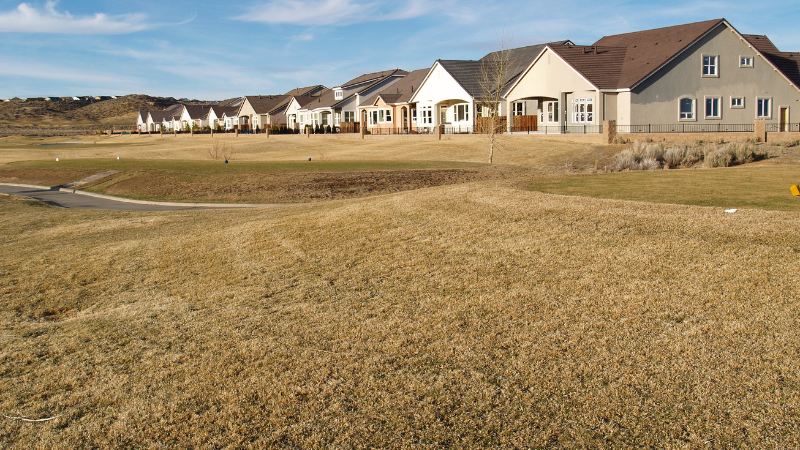
Here are some water conservation practices that you can do at home:
- Check your pump regularly
- Plant native grasses, shrubs, and trees
- Don’t install fountains or other ornamental water features unless they use re-circulated water
- Do rainwater harvesting
- Eliminate car washing and lawn watering
- Brush management
Drought Property Damage FAQ
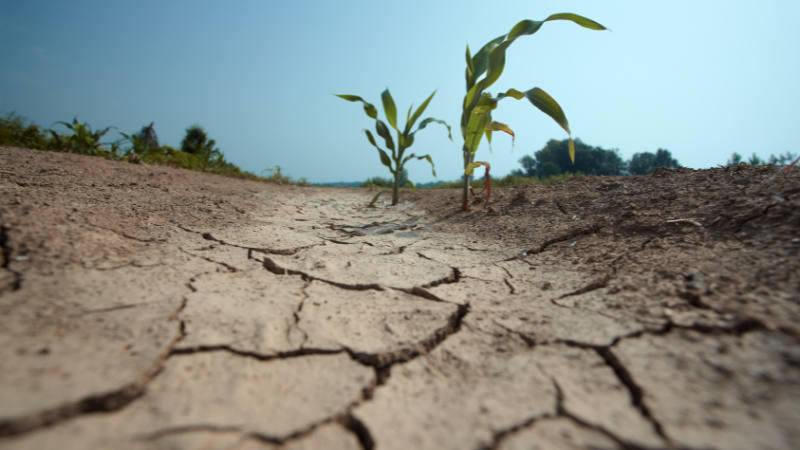
Can droughts cause property damage?
Droughts can cause major property damage. Whether they cause issues to your garden as it fully dries out, to your plumbing system with burst or damaged pipes, or to the foundation of your home, droughts can cause devastating and costly damage. It is important to be aware of these possible issues and prevent them with regular maintenanceMaintenance is the routine care, inspection, and repair of a... More.
Does homeowners’ insurance cover drought damage?
Most property and homeowners’ insurance policies do not cover damage due to drought, natural shrinking, settling, or soil expansion. You should always consult your insurance rep so they can assess your current policy and let you know what is and is not covered.
The Effects of Drought on Homes
Droughts can cause water supply shortages and affect the landscaping of your home by dryingDrying is the process of removing moisture from materials, s... More out trees, shrubs, and gardens. The foundation of your home can become damaged due to a drought, causing damage to the structureStructure refers to the framework or components of a buildin... More of your home which can be dangerous and costly. Finally, it can cause plumbing issues in your home such as lack of water pressure or burst pipes which can take time and money to fix. This is why it is important for you to maintain your home regularly and make sure that you always conserve energy and water. You should only plant shrubs and plants that don’t require a lot of water, regularly check your piping and foundation, and conserve or recycle water whenever possible.
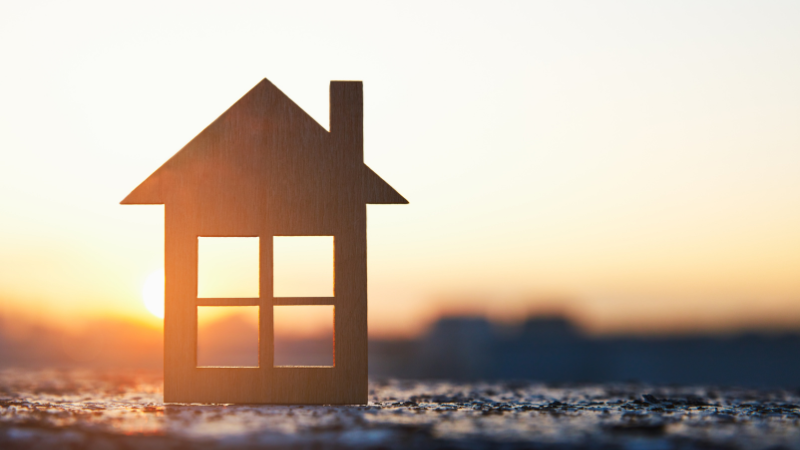
Droughts can cause water damage to your home and even increase the risk of fire damage as wildfires are more likely to occur in droughts and spread faster. This is why it is crucial for you to ensure that you take all possible precautions to prevent water and fire damage in your home during drought conditions. If you experience water damage in your home, it is important to call a water damage restoration professional right away. These professionals will help stop the water from spreading and restore the damage it caused.
Fire damage a during drought can be extensive because the fire can spread quickly in dry conditions. Make sure you call a fire damage restoration professional right away if your home is affected by a fire. These professionals can restore structural damage caused by the fire and clean up smoke and sootSoot is fine black particles composed of carbon and other ma... More.











